John F. Kennedy Jr.'s Death: The Details Behind His Tragic Plane Crash and Its Aftermath
- Oops!Something went wrong.Please try again later.
- Oops!Something went wrong.Please try again later.
- Oops!Something went wrong.Please try again later.
- Oops!Something went wrong.Please try again later.
John F. Kennedy Jr. and wife Carolyn Bessette died in 1999. Here's what to know about the tragic accident that claimed their lives and the legacy JFK Jr. left behind
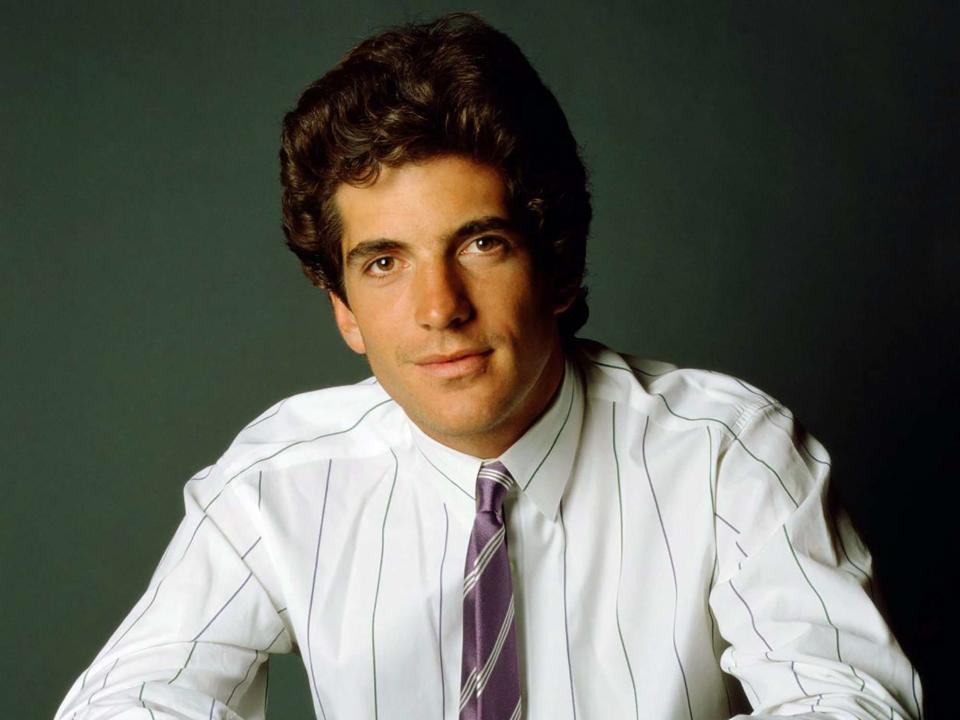
Brownie Harris/Corbis/Getty
John F. Kennedy Jr. died in a tragic plane crash on July 16, 1999, with his wife Carolyn Bessette Kennedy and sister-in-law Lauren Bessette.
The son of late President John F. Kennedy and Carolyn, a fashion publicist, were on their way to Rory Kennedy's wedding with Carolyn's sister, Lauren, then a vice president at Morgan Stanley, when the aircraft plunged into the Atlantic.
"We are filled with unspeakable grief and sadness by the loss of John and Carolyn and Lauren Bessette. John was a shining light in all our lives and in the lives of the nation and the world that first came to know him as a little boy," Sen. Ted Kennedy said in a statement (via The Washington Post) on behalf of the Kennedy family.
Related: JFK Jr.'s Inner Circle Shares Rarely Seen Photos & Touching Memories
Carolyn and Lauren's surviving family said in a statement: "Each of these three young people — Lauren Bessette, Carolyn Bessette Kennedy and John F. Kennedy Jr. — was the embodiment of love, accomplishment and passion for life. John and Carolyn were true soul mates [and took] solace in the thought that together they will comfort Lauren for eternity."
Here's what to know about John F. Kennedy Jr.'s death, and the legacy he left behind.
How did John F. Kennedy Jr. die?
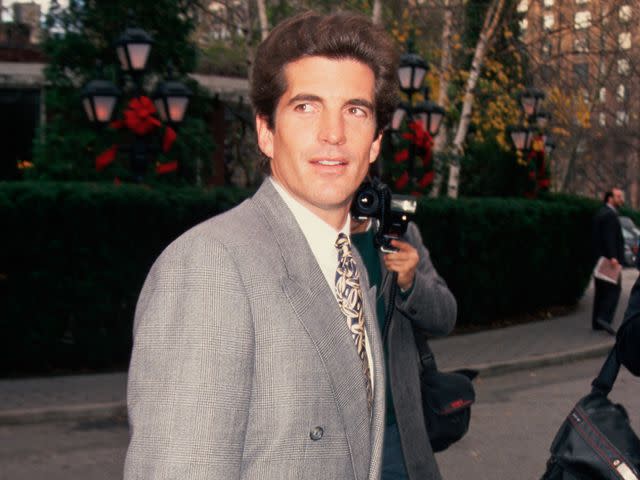
Mitchell Gerber/Corbis/VCG/Getty
Kennedy reportedly became disoriented while flying through thick fog over the coast of Martha's Vineyard in Massachusetts. The plane spiraled downward and crashed into the Atlantic Ocean.
The plane plummeted into the ocean within about 30 seconds, The Washington Post reported. Radar data showed Kennedy's Piper Saratoga dropping from 2,200 feet to 1,100 feet in a span of 14 seconds, well beyond the safe descent rate for the aircraft. The last known radar capture of the plane was taken at 9:40 and 34 seconds, at which point the aircraft was at about 1,100 feet (about twice the height of the Washington Monument) and plummeting at about 53 miles per hour toward the ocean.
Investigators claimed that the speed of the descent, combined with Kennedy not making a distress call, indicated the drop was rapid. Experts also doubted potential mechanical failures, as the plane passed its annual inspection less than one month before the crash.
Navy divers recovered the bodies of Kennedy, Carolyn and Lauren from 116 feet of water on July 21, 1999, The Washington Post reported. They were all strapped in their seatbelts in the aircraft wreckage, with Kennedy still in the cockpit. Autopsies concluded that all three died upon impact.
In July 2000, the National Transportation Safety Board declared in a report that pilot error was the most likely cause of the plane crash.
The New York Times reported that one of Kennedy's instructors told the board he offered to fly with Kennedy the night of the crash but that Kennedy refused. The report says that haze likely obscured the horizon the evening of the fateful flight, causing Kennedy to become disoriented.
Kennedy's close friend, historian Steven M. Gillon, previously told PEOPLE, "At the first sign of danger, he should have done what a lot of pilots did that night and flew inland, away from the ocean, spend the night somewhere and then pick up the next morning,...It was [John's] poor judgment that led to his death and the death of his wife and his sister-in-law, and there's no way around that. John bears the responsibility of his recklessness that night and John alone."
When did JFK Jr. die?
Kennedy died sometime after 9:40 p.m. on July 16, 1999.
Where did JFK Jr. die?
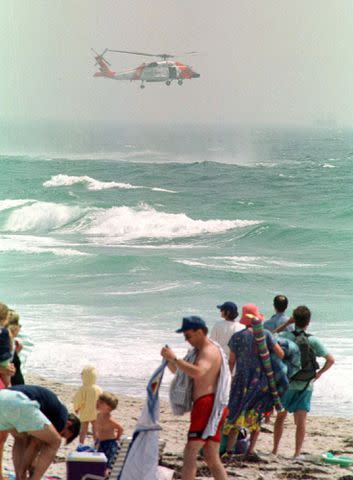
Evan Richman/The Boston Globe/Getty
Kennedy, Carolyn and Lauren Bessette died in their aircraft in the Atlantic Ocean about 7.5 miles from Martha's Vineyard on the coast of Massachusetts.
How old was JFK Jr. when he died?
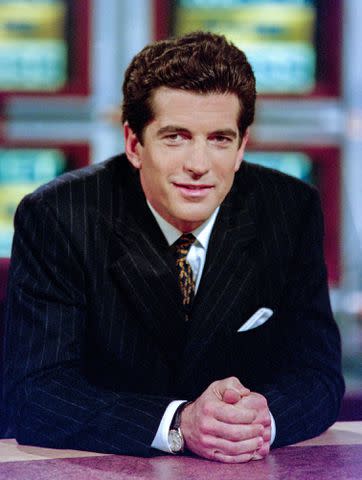
Richard Ellis / Alamy
Kennedy was 38 years old when he died. Carolyn Bessette was 33 years old and her sister Lauren was 34.
What were JFK Jr.'s last words?
Kennedy's last words aren't known, as he didn't make any distress calls during the flight that ultimately took his life and the lives of his wife and sister-in-law.
How did the public react to JFK Jr.'s death?
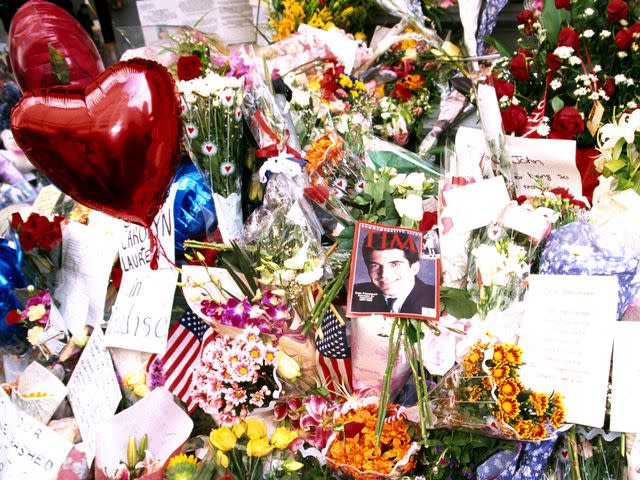
George De Sota/Liaison/Getty
The public reaction to Kennedy's death was that of heartbreak, especially in the context of the past Kennedy family tragedies, with many regarding it as an example of the "Kennedy curse."
At Hyannis Port in Massachusetts, where the Kennedys own several properties, many businesses and residents reportedly flew flags at half-staff in mourning for Kennedy Jr. and the Bessette sisters. President Bill Clinton flew the White House flags at half-staff.
At a public memorial, Sen. Edward M. Kennedy said of John (via The New York Times), "We dared to think, in that other Irish phrase, that this John Kennedy would live to comb gray hair, with his beloved Carolyn by his side. But, like his father, he had every gift but length of years."
What legacy did JFK Jr. leave behind?
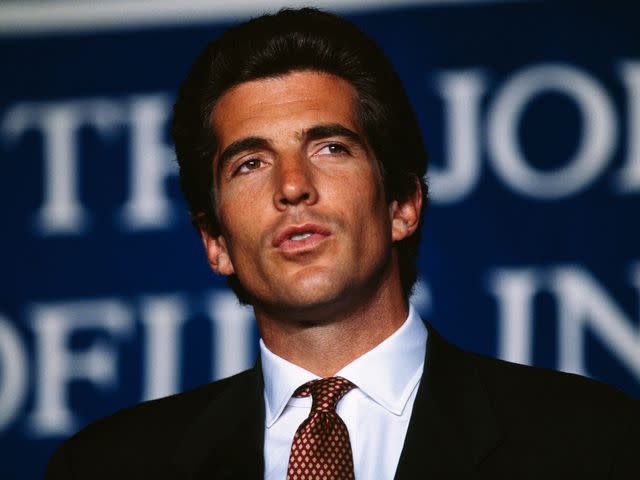
Brooks Kraft LLC/Sygma/Getty
RoseMarie Terenzio, Kennedy's personal assistant, close friend and author of Fairy Tale Interrupted, said Kennedy always kept his legacy in mind whenever he had to make decisions, especially publicly.
"He understood his legacy and was careful with it," Terenzio told PEOPLE in 2019. "He only used it in a way that would benefit the greater good. He never did an interview unless there was a purpose. It was always about what good it would do."
Terenzio said that Kennedy supported underdogs whenever he could and expressed pride in his late father's legacy as well.
At Kennedy's funeral, his uncle, Sen. Edward Kennedy, said John "had only just begun" his life and that he'd bore "a great promise of things to come" before his death (per The New York Times).
Related: JFK Jr. Would Have Gone on to Be President If He Hadn't Died in Plane Crash, Friend Believes
According to Gillon, some of those things may have included political ambitions that "transcended traditional partisan divisions."
"In that final year of his life, he was ready to test his ideas in the public arena by running for office, most likely for governor of New York," Gillon said. "Unfortunately, his journey ended on a steamy July evening and we are left wondering, 'What if?' "
Gillon told PEOPLE that his close friend "will always be remembered for the promise that went unfulfilled," and that he "[should] be remembered for who he was: a complicated and an extraordinarily decent human being."
For more People news, make sure to sign up for our newsletter!
Read the original article on People.

